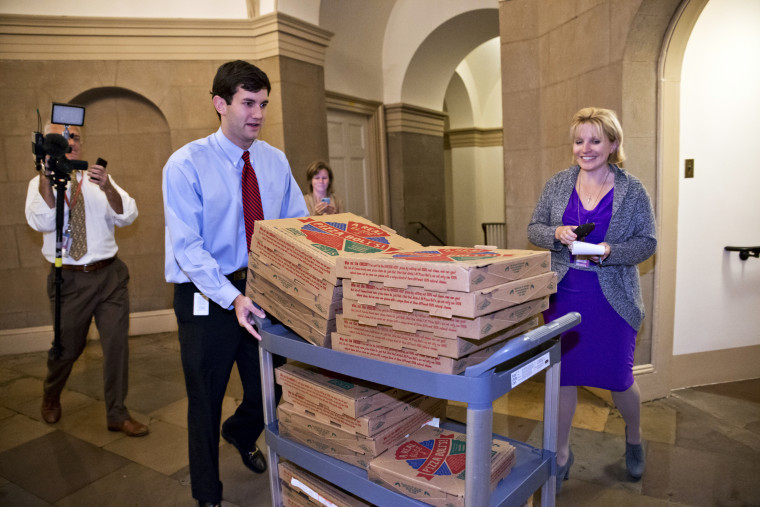As signs of hope on a fiscal deal emerged from Washington Wednesday, thousands of furloughed workers were still stuck at home. However many of the employees keeping the federal offices running for nearly three weeks during the government shutdown were not all technically "essential" workers—in some cases, they were unpaid interns.
The Executive Office of the President, for example—which houses such important entities as National Security Staff and the National Economic Council—is missing 1,265 of its usual 1,701 staff members. The rules governing Executive Branch furloughs don't allow staff members to even volunteer their time to keep these offices functioning—but since unpaid interns are already legal volunteers, they can continue working.
In some House members' offices where staff has been furloughed, unpaid interns are also stepping in. According to Salon's Keenan Steiner, interns in these Hill offices are essentially replacing staff assistants and legislative correspondents.
